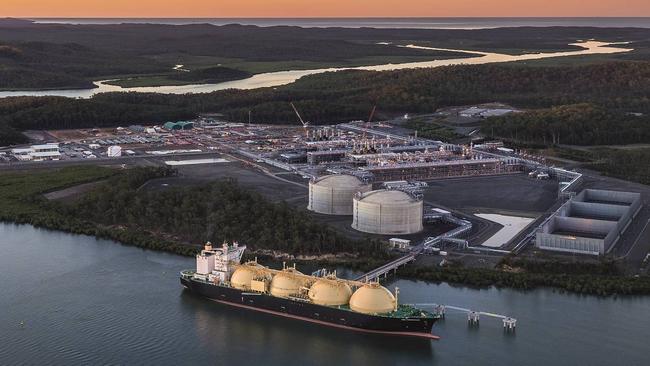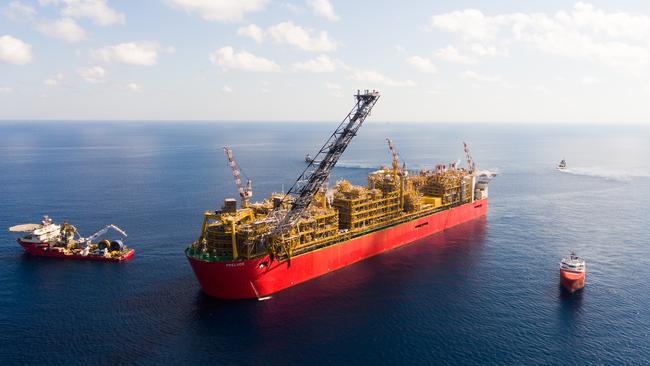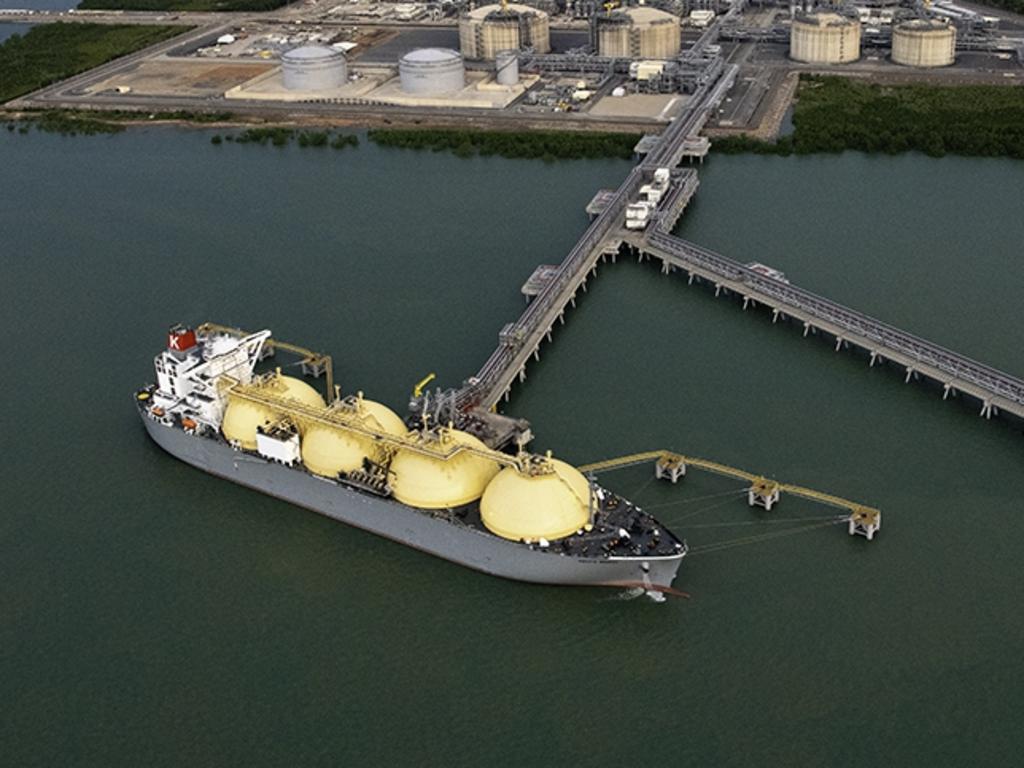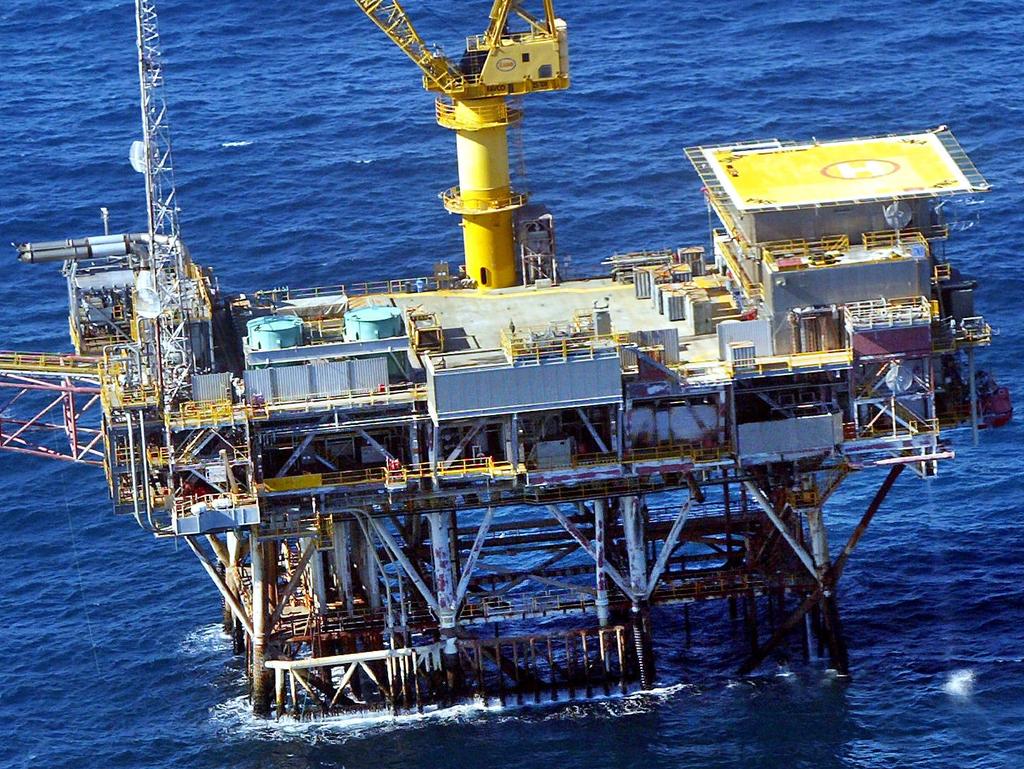LNG producers say gas reservation scheme would ‘slash investment’
Australia’s most powerful energy producers have attacked a plan to introduce a domestic gas reservation policy.

Australia’s most powerful energy producers have attacked a plan by the Morrison government to introduce a controversial domestic gas reservation policy, warning the potential intervention will slash investment and distort the east coast market.
The government is in talks with industry over Australia’s first ever national gas reservation system that would apply to future rather than existing developments, with a final decision due in June 2021.
However, the policy proposal has been met with near universal opposition from the nation’s biggest producers, battered this year by an oil price crash that has seen cuts to jobs and spending and projects delayed.
Energy giant Shell, one of Australia’s largest foreign investors, warned against the move.
“We advise the government against further interventions that will distort the market, impact confidence in the sector and create sovereign risk thereby discouraging investment, ” Shell said in its submission to the government. “Depressing returns or creating additional sovereign risk for investors risks jeopardising the ability to attract capital and investment in an environment where Australian LNG projects are already challenged.”
Western Australia already operates a reservation scheme requiring 15 per cent of gas reserves at LNG export projects to be set aside for use within the state. Canberra is investigating whether an east coast mechanism may free up supplies and cut prices in line with its vision for a gas-led recovery from COVID-19.
LNG suppliers including Shell are also facing the potential introduction of formal price controls under a separate policy that may apply to Queensland’s three LNG producers.
Shell cautioned against putting in place a mechanism for a short-term hit and said it would hinder spending in the broader energy sector, including technologies backed by Canberra as part of its roadmap. “Many of the current gas and LNG producers have publicly stated their intention to invest in other parts of the energy system, including power generation, storage, LNG import terminals, carbon capture utilisation and storage, and hydrogen. Poor policy that creates additional sovereign risk could threaten these investments at a time when Australia will need unprecedented levels of investment to transition our energy system,” Shell said.

Origin Energy, operator of the $25bn APLNG gas export project in Queensland, hinted the policy could see investment cancelled in major supply sources including its Northern Territory Beetaloo prospect, a gas basin already targeted by Scott Morrison to boost supply.
“Without the flexibility to sell internationally, which provides additional commercial certainty, new developments may not proceed at all. This is particularly true for new large remote basins which require significant infrastructure investments and the certainty provided by access to markets beyond the size of Australia’s domestic market,” Origin said.
US major ConocoPhillips, a partner in APLNG, said the move would send the wrong international signals at a time when Australia — the biggest LNG exporter in the world — faces an assault from rivals.
“A prospective national domestic gas reservation scheme represents a threat to the integrity of foundation contracts that underpinned the final investment decisions for APLNG, putting at risk Australia’s longstanding reputation as a stable investment destination and reliable supplier to both domestic and global markets. It is worth noting a prospective national domestic gas reservation scheme would be introduced at a time when multiple LNG projects in Qatar, US, Canada and Africa are competing for scarce capital,” Conoco said.
Japan’s Inpex, developer of the $US45bn Ichthys gas plant in Darwin, also hit back at the proposal. “The implications of a national gas reservation scheme are significant. In short, we are of the view that such a policy would erode confidence in Australia‘s competitive position and damage the country’s reputation as an investment destination of choice and as one of the most reliable suppliers of LNG in the world.”
ExxonMobil, which has just canned the multibillion-dollar sale of its 50 per cent stake in the Bass Strait gas fields off the coast of Victoria, said the mechanism would damage a pipeline of future supplies.
“This was experienced in Argentina where a tightly regulated market set prices below the cost of production. As a result, there was a lack of investment in exploration which meant that Argentina moved from being a net exporter of gas to a net importer,” Exxon said.
Still, several big users including BlueScope said the policy would help correct the market.
“BlueScope believes a well-designed scheme can provide much needed long-term policy certainty to both producers and consumers, setting expectations and clear investment signals for suppliers and a level of supply security to allow consumers to make longer term investment decisions,” the company said.
The Energy Users Association suggested retrospective reservation could be called for.








To join the conversation, please log in. Don't have an account? Register
Join the conversation, you are commenting as Logout